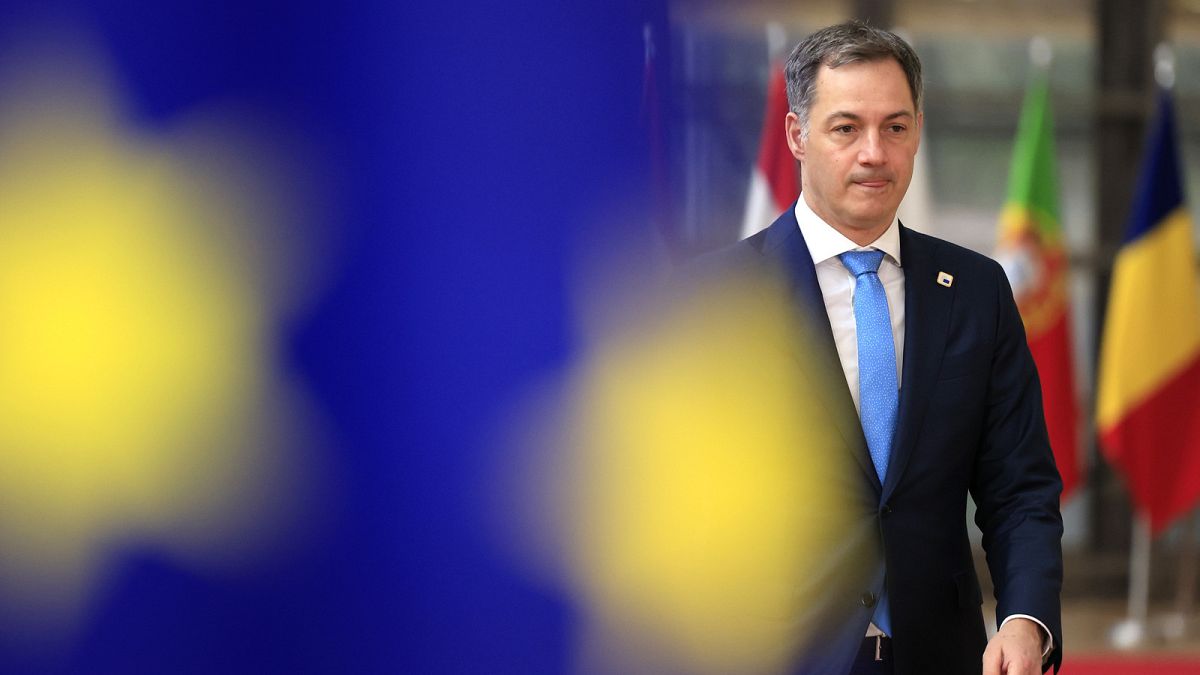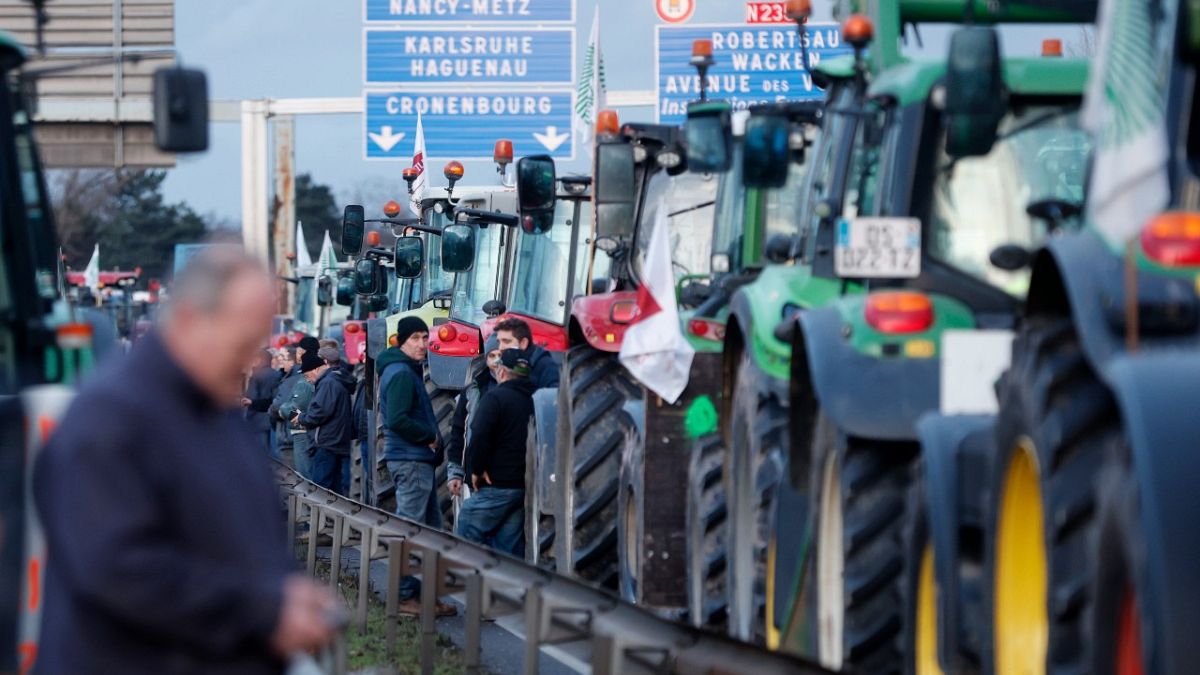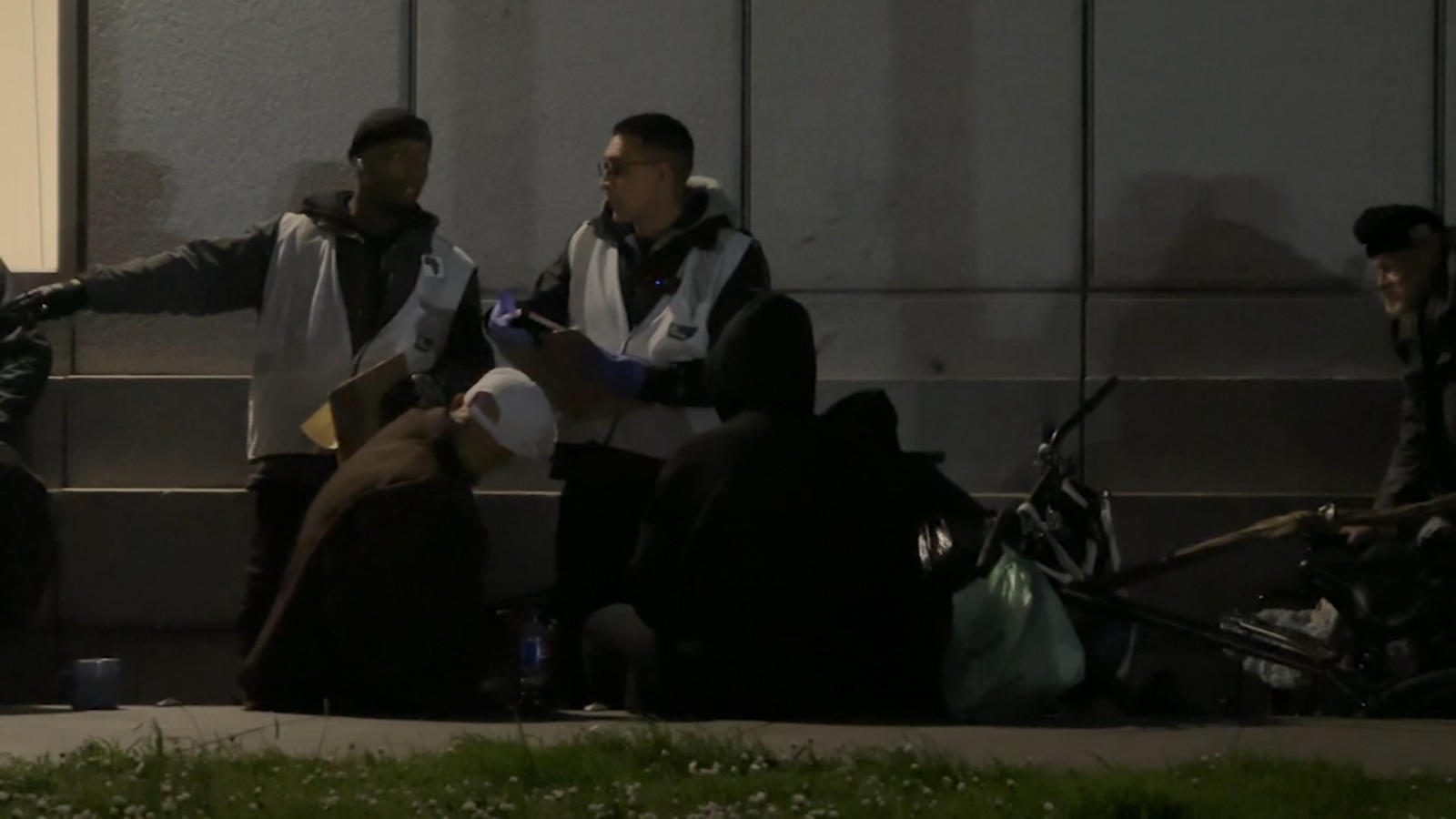World
Israel Hamas war: Are brand boycotts based on accurate info?
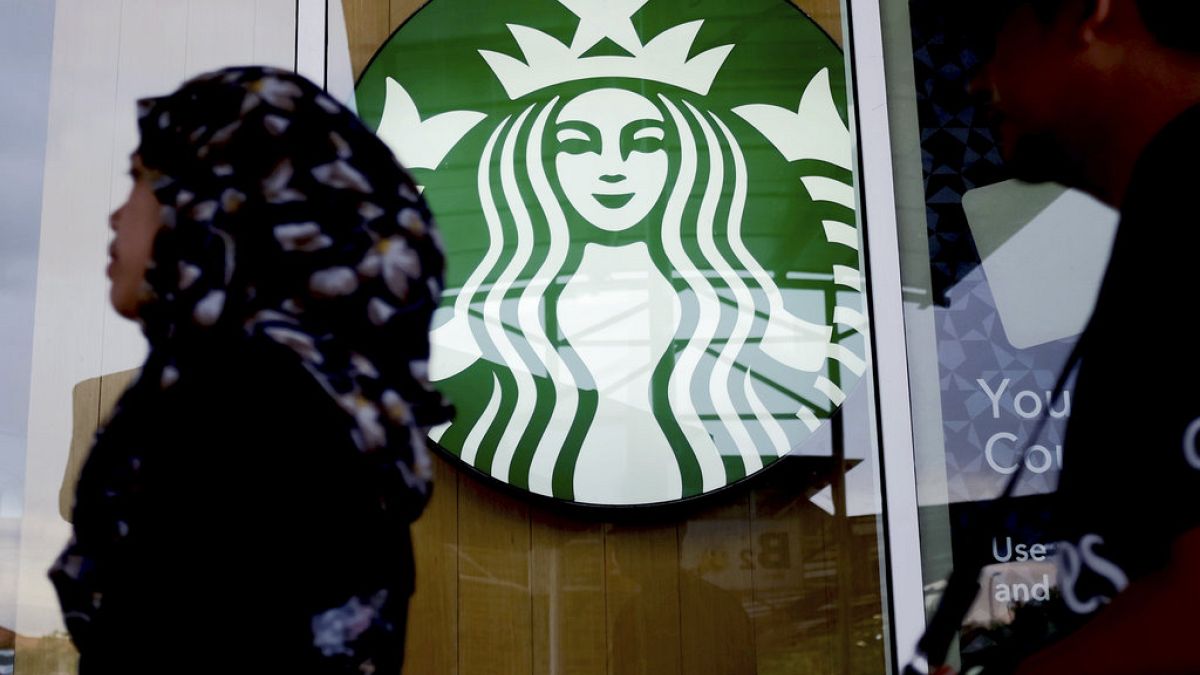
Starbucks and Zara, among others, have faced boycotts for allegedly supporting Israel. However, are some of these calls fueled by disinformation?
You may have noticed more and more people calling for a boycott of brands such as Zara and Starbucks on social media.
According to certain accounts, these brands are openly supporting Israel amid the country’s war with Hamas.
But there’s a lot of disinformation going around especially when it comes to the impact of these calls for a boycott.
AI-generated ad misrepresented as Zara mocking Gaza
A video showing Zara clothes being dumped in Times Square in New York City to protest against a controversial advertising campaign by the company has been viewed millions of times on the social media platform X, formerly known as Twitter.
“After Zara made a disrespectful ad about the Gaza conflict, Americans are throwing away all their Zara clothes in front of the company,” claimed one X user who is known for spreading disinformation.
In mid-December, Zara published a campaign, which some people thought was mocking the suffering of Palestinians due to the presence of rubble and what looked like white body bags.
Zara quickly pulled the ad and claimed the photoshoot took place in the summer, before Hamas’ unprecedented attack on Israel on 7 October.
But by doing a reverse image search of the viral footage of the supposed dumped clothes in Times Square, The Cube ended up finding the original clip. It was posted in November 2023 and has nothing to do with the conflict.
The video was posted on the official account of the second-hand fashion platform Vestiaire Collective.
The company announced it was banning thirty fast fashion brands from its shop, including Zara.
Vestiaire Collective spokeswoman told AFP that a French agency specialising in AI created the video.
She said the clip was released “nearly a month” before the Zara ads as part of a company initiative against fast fashion.
Did Starbucks shut down in Morocco?
We’ve seen similar claims of how boycotts have impacted the coffee giant Starbucks.
In an Instagram video posted beginning of December, a woman claims the chain had to shut down in Morocco due to the protests.
“For those of you who say boycotting doesn’t work, Starbucks in Morocco is literally leaving the country… Explicitly for the reasons of the lack of revenue they’ve had because of the pro-Palestine protest in all of Morocco,” she alleged.
She mentions an article from the New Arab as her source, which claims Starbucks and H&M are both leaving Morocco “due to low demand tied to the ongoing boycott campaign.”
But when taking a closer look, The Cube found this article cited another one from a Moroccan local newspaper, Maroc Hebdo.
However, neither article has any evidence to back the claim the boycott shut down the cafés in the country.
Since then, the New Arab updated their article to include comments from the spokesperson behind the franchise which runs Starbucks in Morocco, who denied the claims and confirmed that all 18 Starbucks stores will continue operating in the country.
Why are people boycotting Starbucks?
According to the AP, shortly after fighting between Israel and Hamas erupted, a Starbucks Workers United account tweeted in support of Palestine.
Starbucks filed a lawsuit against the trade union over the post, saying it angered hundreds of customers and damaged its reputation.
Controversy towards Starbucks’ response has led some to boycott the coffee giant.
It’s true that Starbucks’ stock market price is down by nearly $11 billion (€10bn) during the past month.
Are these losses in any way related to the boycott? Analysts say it’s hard to know the impact these boycott calls are having on the company’s stock price but have expressed doubt that the protests are the cause of the decline.
“Some data suggests Starbucks isn’t doing as well, or at least not as well as expected. It appears its deals and specials just aren’t hitting as well as anticipated,” according to an analysis by Vox.
However, in its latest financial release from November 2023, the company didn’t indicate a slowdown in earnings.
A clearer picture won’t come until its next financial release in February 2024.

World
A Satellite View of Israel’s New Front in Gaza

New satellite imagery taken after Israeli forces pushed into Rafah shows widespread damage to the southern Gaza city — including large areas of flattened structures — and clusters of Israeli armored vehicles.
Source: Satellite imagery from Planet Labs
Imagery captured on Tuesday morning by Planet Labs, a commercial satellite company, shows damaged buildings reaching more than two miles into the territory near Rafah’s border crossing with Egypt. Israel seized that crossing this week.
Photos and videos released by the Israeli military in the same area show tanks in the vicinity of the crossing at a similar time on Tuesday morning.
While it is not possible to know exactly what caused the damage shown in the satellite imagery, much of what can be seen is consistent with the aftermath of clearing operations and other Israeli ground operations elsewhere in the Gaza Strip.
Source: Satellite imagery from Planet Labs
Israel says Rafah is Hamas’s last stronghold, and a critical gateway for arms shipments smuggled into Gaza from Egypt. It says it is determined to make sure the militants who were behind the Oct. 7 attacks on Israel no longer pose a threat.
But Rafah has also become a refuge for more than a million Palestinians who have fled Israeli bombardment in other parts of Gaza, and there is broad concern that a full-scale invasion might prove catastrophic.
Beyond that, Rafah is also home to one of the two main entry points for the vast majority of aid that has managed to enter Gaza during the war. Since the latest Israeli military operation began, no fuel or aid has made it through, according to Scott Anderson, the deputy director of UNRWA, the main U.N. aid agency in Gaza.
Source: Israeli military announcements
On Monday, the Israeli military ordered about 110,000 people to evacuate parts of Rafah. Thousands left the city, the Palestine Red Crescent Society said, which reported “escalating Israeli airstrikes” in areas east of Rafah.
Local health authorities warned of a “significant increase” in the death toll because of intense Israeli bombardment across Gaza, particularly in Rafah. The bodies of 58 people killed in Israeli strikes had arrived at Rafah’s Abu Yousef al-Najjar Hospital since Sunday, Dr. Marwan al-Hams, the hospital’s director, said Tuesday.
World
US reputation declines globally, immigration concerns grow in Europe: study

The reputation of the U.S. globally has taken a hit over the last year and the majority of citizens believe election integrity threatens the country’s democracy, while immigration is now one of the top concerns among Europeans, according to a global study published on Wednesday.
The drop in positive attitudes towards the U.S. is particularly stark in the Muslim-majority countries surveyed, including Indonesia, Malaysia, Turkey, Morocco, Egypt, and Algeria, as well as in European countries such as Switzerland, Ireland, Ukraine and Germany.
Still, the U.S. remains positively viewed globally, although Russia and China are now seen as positively as the U.S. in most Middle East and North African countries surveyed, according to the study.
BIDEN PLAN TO EXTEND OBAMACARE ELIGIBILITY TO ILLEGAL IMMIGRANTS GETS PUSHBACK IN CONGRESS: ‘MADNESS’
Biden speaks at the Pieper-Hillside Boys and Girls Club in Milwaukee, Wisconsin, on March 13, 2024. The reputation of the U.S. has suffered globally between the Spring of 2023 and the Spring of 2024. ( Sara Stathas/Bloomberg via Getty Images)
In Europe, countries have witnessed a sharp increase in the share of people who say that “reducing immigration” should be a top government priority as concerns about climate change fall, according to a global study published on Wednesday. About 5.1 million immigrants entered the EU from non-EU countries in 2022, an increase of around 117%, or 2.7 million, compared to 2021, European data shows.
Germany was in the lead with 44% when it came to people wanting their government to focus on reducing immigration, followed by Ireland and France.
The study, called the Democracy Perception Index (DPI) is one of the world’s largest annual studies on how people perceive the state of democracy in their respective countries and consisted of 63,000 interviews from people across 53 countries. It was conducted by the Denmark-based think tank Alliance of Democracies Foundation and the research group Latana. It did not provide a reason for the U.S. reputation decline.
The DPI found that faith in democracy has remained high across the globe over the past six years with 85% of those polled saying that it’s important to have democracy in their country.
However, governments don’t always live up to people’s expectations. While 58% of respondents were satisfied with the state of democracy in their country, the remainder were not.
In the U.S., 60% of respondents said that unfair elections and/or election fraud threatens the country’s democracy, while about 77% said that corruption is a threat to democracy.
LESS THAN 1 IN 4 AMERICANS HAVE FAVORABLE OPINION OF FEDERAL GOVERNMENT: POLL
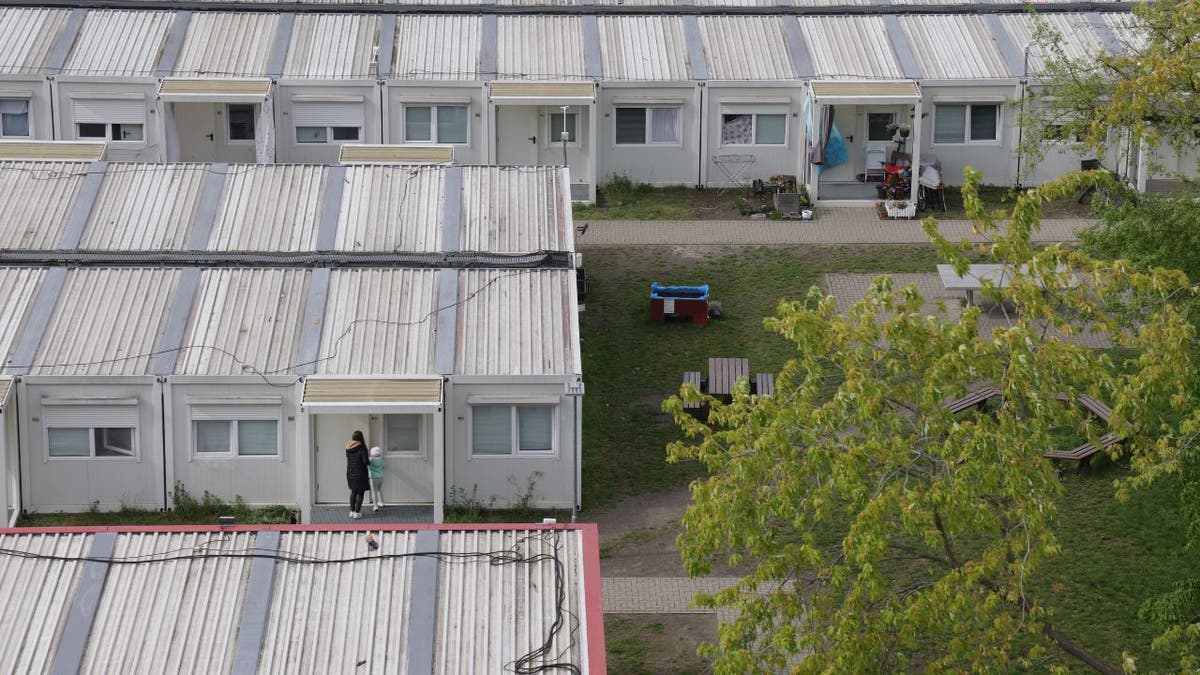
A container settlement that provides housing for refugees stands in Kreuzberg district on April 16, 2024 in Berlin, Germany. Immigration is now a major concern among Germans. ( Sean Gallup/Getty Images)
The study said dissatisfaction was not limited to non-democratic countries. It was also prevalent in the U.S., Europe and in other places with a long democratic tradition.
In Europe, about a third of Hungarians believe they live in a democracy.
About half of the people around the world, in both democratic and non-democratic countries, feel that their government is acting only in the interest of a small group of people. Over the past four years, this perception has remained highest in Latin America, lowest in Asia and has steadily increased in Europe since 2020 – particularly in Germany, the study shows.
Israel, Ukraine and Russia have all experienced a “rally around the flag” effect, with the public perception that the government is acting in the interest of the majority of the people increasing rapidly after the start of their respective conflicts. In Ukraine, however, this perception declined sharply after it peaked in 2022.
Anders Fogh Rasmussen, the chair of the Alliance of Democracies Foundation and former Danish Prime Minister, says that these figures are an eye-opener and the trend shows there is a risk of losing the Global South to the autocracies.

The DPI found that faith in democracy has remained high across the globe over the past six years with 85% of those polled saying that it’s important to have democracy in their country. (PAUL J. RICHARDS/AFP via Getty Images)
“Around the world people want to live under democracy but these figures are a wake-up call for all democratic governments,” Rasmussen said.
“Defending democracy means advancing freedom around the world, but it also means listening to voters’ concerns at home… We are witnessing an axis of autocracies forming from China to Russia to Iran. We must act now to make freedom more attractive than dictatorship and unite through an alliance of democracies to push back against the emboldened autocrats.
War and violent conflict is increasingly seen as the most important global challenge, followed by poverty and hunger, and climate change. The last year has seen a global rise in the share of people who say that migration and terrorism are among the world’s largest challenges, particularly among Europeans.
At the national level, most people want their governments to focus more on poverty reduction, corruption and economic growth.
However, there are strong regional differences in priorities: Europeans and Americans are much more likely to want their government to prioritize improving healthcare, fighting climate change and reducing immigration than countries in Asia and Latin America, where fighting corruption and promoting growth are seen as more important.
Globally, 33% of those surveyed believe climate change is one of the world’s three main challenges, but only 14% say fighting it should be among the top three priorities for their government.
Immigration is likely to play a major role in next month’s European elections where nationalist parties are expected to make significant gains.
The Associated Press contributed to this report.
World
Brussels agrees to send €3bn from frozen Russian assets to aid Ukraine

Diplomats agreed the controversial plans at a meeting on Wednesday – but some say they don’t go far enough.
EU diplomats agreed Wednesday to use income from frozen Russian state assets to aid Ukraine – paving the way for the war-torn country to get around €3 bn for arms purchases and reconstruction before the summer.
Since the full-scale invasion of 2022, €210 billion in assets of the Moscow central bank have sat frozen within the bloc – chiefly at the Euroclear depositary in Belgium.
The deal was agreed “in principle” at a regular meeting of national representatives, according to a tweet by Belgium, currently chairing talks in the European Council.
Brussels has long touted using the interest from those funds, estimated at around €3bn per year, for Ukraine’s reconstruction costs – and later extended its plans to cover Kyiv’s military expenditure.
The plan – which also has backing from the group of seven leading industrialised democracies – comes as Ukraine hopes to turn the tide in an increasingly desperate military campaign, bolstered by €89bn recently agreed by the US Congress.
But Ukrainian ministers have said Brussels needs to go further than merely scooping up interest payments – and fully confiscate Moscow’s assets to ensure the aggressor pays for the cost of war.
Officials from EU countries and the European Central Bank have expressed concerns that seizing assets outright might set an unhelpful precedent or harm the euro’s reputation as a safe currency.
Talks were also held up by concerns over how many of the assets would be retained by Euroclear as an administration fee, a figure that was originally as high as 13%, as well as Belgium’s right to tax the profits gained by the Brussels-based securities depository.
Belgian Prime Minister Alexander De Croo has already promised to send some €1.5bn directly to Ukraine, though that appears to be a result of applying existing corporate tax law to the unexpected windfall Euroclear gains by having frozen central bank assets on its books.
The final deal allows Euroclear to keep a provisional buffer worth 10% of the profits, in case of litigation over the funds. It can also keep 0.3% as an incentive, while 90% of the funds will be sent via the European Peace Facility to help Ukraine buy weapons.
Commission President Ursula von der Leyen previously suggested Ukraine could receive the first funds under the mechanism by July – but the calculation will be backdated to February, when Euroclear formally segregated the assets.
Ambassadors today also formally agreed on the reforms Ukraine will have to make to receive funds from a separate €50bn facility of EU grants and loans.
UPDATE (8 May, 17:00 CET): adds clarification regarding litigation buffer.
-

 Politics1 week ago
Politics1 week agoHouse Republicans brace for spring legislative sprint with one less GOP vote
-

 World1 week ago
World1 week agoAt least four dead in US after dozens of tornadoes rip through Oklahoma
-

 Politics1 week ago
Politics1 week agoStefanik hits special counsel Jack Smith with ethics complaint, accuses him of election meddling
-

 Politics7 days ago
Politics7 days agoThe White House has a new curator. Donna Hayashi Smith is the first Asian American to hold the post
-

 Politics1 week ago
Politics1 week agoAnti-Trump DA's no-show at debate leaves challenger facing off against empty podium
-

 News1 week ago
News1 week agoAs student protesters get arrested, they risk being banned from campus too
-

 News1 week ago
News1 week agoVideo: Police Arrest Columbia Protesters Occupying Hamilton Hall
-

 World1 week ago
World1 week agoNine on trial in Germany over alleged far-right coup plot
